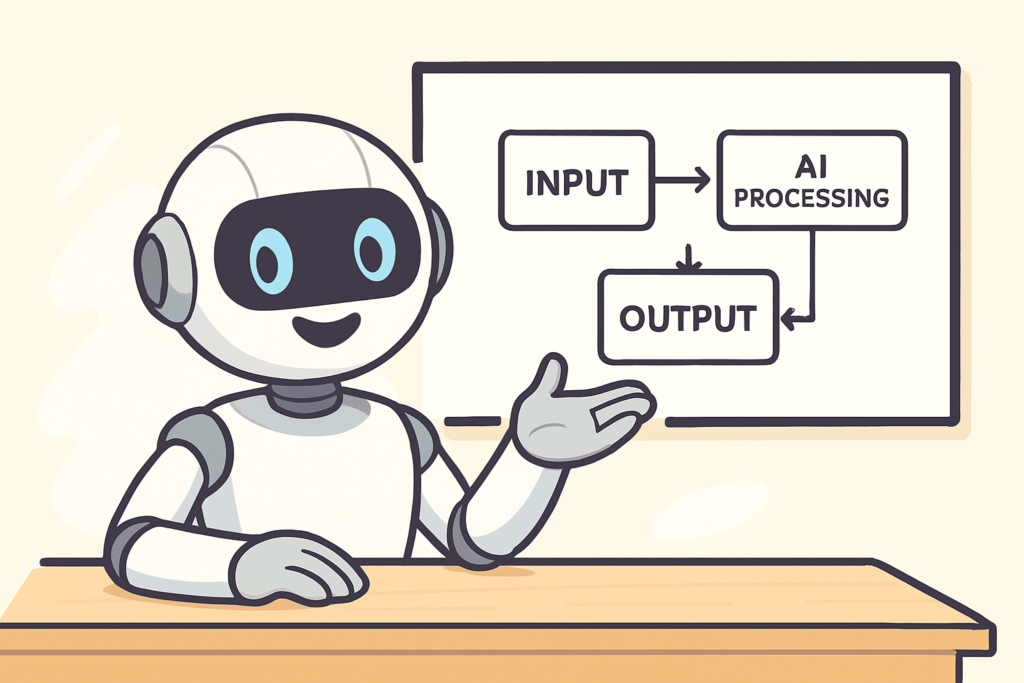AI and Data Privacy: What Small Business Owners Need to Know
Using AI tools often involves inputting information, sometimes related to your business or customers. This naturally raises questions about data privacy and security. While AI offers huge benefits (like these), it’s crucial to be mindful of privacy considerations.
How AI Tools Use Your Data:
The specifics vary greatly depending on the tool and provider, but generally:
- Model Training (Often Anonymized/Aggregated): Some providers might use the data inputted into their public tools (especially free versions) to further train and improve their AI models. Reputable companies usually state they anonymize or aggregate this data, removing direct personal identifiers.
- Service Provision: The AI needs to process your input (your prompts, your documents) to generate the output you requested. This processing happens on the provider’s servers.
- Account Information: Your login details, usage statistics, and payment information are handled like any other online service.
Key Privacy Concerns for SMBs:
- Confidential Business Information: Avoid inputting highly sensitive strategic plans, secret formulas, detailed financial data, or unreleased product information into public AI tools unless you fully understand and trust the provider’s data handling policy, especially regarding model training.
- Customer Personally Identifiable Information (PII): Be extremely cautious about inputting customer names, addresses, phone numbers, email addresses, or any other PII into general-purpose AI tools. This could violate privacy regulations (like GDPR, CCPA) and your own privacy policy.
- Third-Party Data Sharing: Understand if and how the AI provider might share data with other parties.
Best Practices for Small Businesses:
- Read the Terms of Service & Privacy Policy: Yes, it’s tedious, but crucial. Look specifically for sections on:
- How your input data is used (especially regarding training).
- Whether you can opt-out of data usage for training.
- Data retention policies (how long they keep your data).
- Security measures they employ.
- Compliance with relevant privacy laws (GDPR, CCPA etc.).
- Favor Business/Enterprise Versions: Paid or enterprise versions of AI tools often come with stronger privacy commitments, including guarantees that your data won’t be used for training their public models.
- Avoid Inputting Sensitive PII: Do not paste lists of customer emails or sensitive personal details into general AI chatbots or writing assistants. If dealing with customer data, use tools specifically designed for that purpose with appropriate security and compliance (like secure CRM platforms).
- Anonymize Data Where Possible: If you need AI to analyze trends or text, try to remove or anonymize specific names or identifiers before inputting the data.
- Educate Your Team: If employees use AI tools, ensure they understand these privacy guidelines.
- Consider On-Premise or Private Cloud Options (Advanced): For very high sensitivity, some larger businesses explore AI models that run on their own infrastructure, though this is complex and costly.
The Bottom Line:
AI tools offer incredible potential, but don’t treat them like a secure vault for your most sensitive information unless the provider’s terms explicitly guarantee that level of privacy (often found in paid/enterprise plans). Exercise caution, read the policies, and prioritize protecting confidential business data and customer PII. Balancing innovation with privacy is key.

